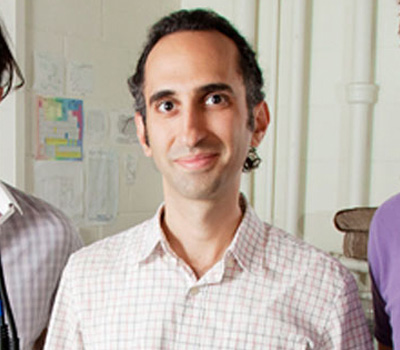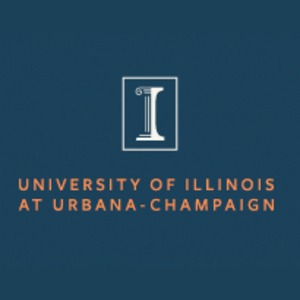Using ultracold quantum gases to investigate strongly interacting quantum matter
Dr. Brian DeMarco, of the University of Illinois, Urbana-Champaign, uses ultracold quantum gases to investigate one of the frontiers of physics: strongly interacting quantum matter. The goal of his research is to use these tools to address outstanding questions, such as how disorder affects metals and superconductors and what the dynamical timescales are that control phenomena like diffusion and conductivity. The real truth of such research is the outcome of knowledge in which scientists can find answers to longstanding questions. By solving the answers to such questions, engineers and material scientists can apply Dr. DeMarco's research to revolutionize our current technologies with applications in carrying energy for heat, electricity, and information.
The process of solving such difficult questions is unique and innovative. Dr. DeMarco and his team carry out an experiment similar to a computer simulation where they are able to tweak every material parameter once every 90-second experimental cycle. Dr. DeMarco is able to test and constrain the most advanced theoretical techniques and predictions while being able to precisely tune and measure the equivalent of all material parameters. He is able to use these ultracold gases to create analogues of electronic solids. Dr. DeMarco's specific work with understanding the impact of disorder on strongly interacting quantum materials is based upon the concept that disorder cannot be completely controlled or eliminated and knowledge of the microscopic disorder is impossible to obtain. Therefore, in contrast to measurements on solids, Dr. DeMarco starts with a perfect crystalline material and adds disorder using a speckle, or a disordered, laser beam. He can then turn that disorder off or make it the largest energy scale present. In addition, he can measure the microscopic disorder with high precision using optical microscopy. In short, Dr. DeMarco's sophisticated methods of solving such difficult questions are both innovative and exciting!
Current research includes:
-
Investigating disorder to understand how it will affect the properties of superconductors, metals, and insulators. In addition he hopes to understand how disorder will transform these types of materials into one another.
-
Understanding how disorder affects the ability to conduct electricity, generate electricity, and carry heat.
-
Investigating how disorder fits into more exotic things like quantum glassy insulators.
-
Exploring how strong interactions and quantum matter affect the ability of materials to carry energy. This research is exceptionally important because of applications for metals and superconductors where electrons can interact strongly. Currently, researchers do not understand how these materials work the way they do or how they conduct energy. Therefore, Dr. DeMarco's research may lead to impressive scientific advances.
Bio
Originally from upstate New York, Dr. DeMarco did his undergraduate work at SUNY Geneseo where he got his start in research.While at Geneseo, he worked for Steve Padalinoand Kurt Fletcher in the Nuclear Structure Laboratory on calibrating neutron detectors. That first taste of real research was enough to ignite his interest in experimental physics for life, and in 1996 he left New York for Boulder, Colorado to pursue a Ph.D. in physics. Dr. DeMarco originally started as a research assistant for Eric Cornell at JILA, switching to work with Deborah Jin in 1997. Together, Debbie and Dr. DeMarco produced the first Fermi gas of atoms. He defended his dissertation in 2001, and went down the road to NIST in Boulder to work with David Wineland on trapped ion quantum computing experiments. In August 2003, he left mountainous Boulder, Colorado to join the faculty of the Physics department at UIUC in the flatlands of Illinois.
Aside from his research, Dr. Brian DeMarco enjoys spending time with his family. He and his son like to go fishing and draw pictures.
Website: www.illinois.edu/~bdemarco


